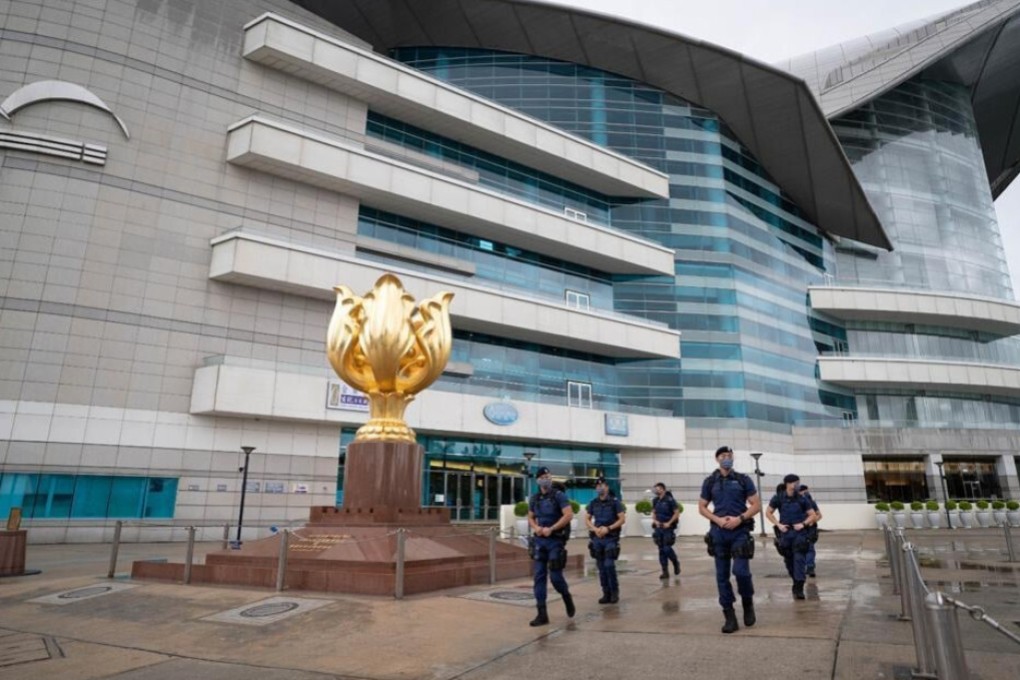Hong Kong chief executive election 2022: police to mobilise as many as 7,000 officers to ensure ‘event runs smoothly and peacefully’
- Nearly 3,000 officers will be deployed on Hong Kong Island, mostly to guard the election venue in Wan Chai, according to a source
- Sole chief executive candidate John Lee reveals he is Catholic, says ‘helping society as a whole’ is his life philosophy

Police are planning to mobilise as many as 7,000 officers to ensure Hong Kong’s chief executive election runs smoothly and peacefully on Sunday, the Post has learned.
Nearly 3,000 of them will be deployed on Hong Kong Island, according to a source, mostly to guard the election venue, the Hong Kong Convention and Exhibition Centre in Wan Chai, where sole candidate John Lee Ka-chiu is running for the top job.
“Security at other locations such as railway stations, infrastructure facilities and major highways and tunnels will also be beefed up,” he said on Tuesday.
Although current intelligence did not indicate any specific threat on Sunday, the source said, the deployment was necessary as the force had to ensure “the event runs smoothly and peacefully”. He added that police had to make sure there was enough manpower to respond to untoward incidents.

Given the stabbing of an officer outside the Sogo department store in Causeway Bay on July 1 last year and the recent online appeal to attack current chief executive Carrie Lam Cheng Yuet-ngor, another source said: “We have to guard against lone-wolf domestic terrorists and any possible attack.”
He said the force had to prepare for the worst regardless of whether any intelligence had been received, adding that police would enhance security not only at the election venue but also for the whole city, including the New Territories.